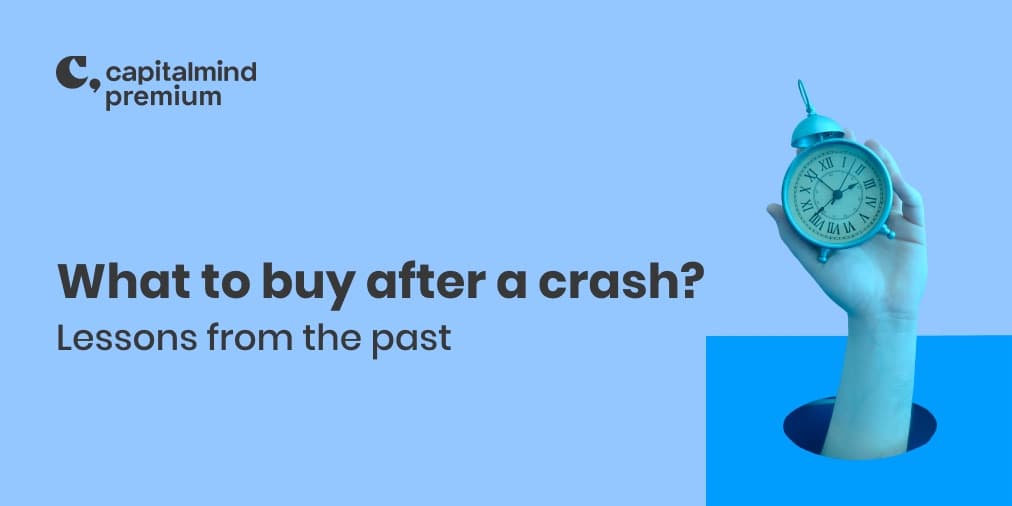(category)Commentary
Money does buy happiness but only if you spend it rightMoney does buy happiness but only if you spend it right
"Why are we so bad at predicting how much pleasure we will experience from future events, whether buying a luxury car, taking a round-the-world cruise, or throwing a fancy wedding bash? This article paraphrases insights from a paper titled "If money doesn't make you happy, then you probably aren't spending it right" by Elizabeth W. Dunn, Daniel T. Gilbert, and Timothy D. Wilson. The authors propose eight principles, backed by empirical research, for spending money to increase happiness: 1. Buy experiences instead of things 2. Help others instead of yourself 3. Buy many small pleasures instead of a few big ones 4. Buy less insurance 5. Pay now and consume later 6. Think about what you're not thinking about 7. Beware of comparison shopping 8. Follow the herd instead of your head When asked to take stock of their lives, wealthy people report being more satisfied than others. However, when asked how happy they are at the moment, their responses tend to be the same as everyone else. The paper's assertion is that if your money is not buying you the things that make you happy, the fault is yours in how you're spending it and can be fixed."
Anoop Vijaykumar•

"It is not surprising when wealthy people who know nothing about wine end up with cellars that aren't much better stocked than their neighbours, and it should not be surprising when wealthy people who know nothing about happiness end up with lives that aren't that much happier than anyone else's."
Why are we so bad at predicting how much pleasure we will experience from future events, whether buying a luxury car, taking a round-the-world cruise, or throwing a fancy wedding bash?
This article paraphrases the insights from a paper titled “If money doesn’t make you happy, then you probably aren’t spending it right” by Elizabeth W. Dunn (Univ of British Columbia), Daniel T. Gilbert (Harvard University), and Timothy D. Wilson (University of Virginia). Specifically, it lists eight principles, backed by empirical research, for spending money to increase happiness.
The authors point to two causes:
Imperfect mental simulations: We are insensitive to the fact that our mental simulations lack important details, and we don’t anticipate the ease with which we will adapt to those positive and negative events.
Different contexts: The context in which we make forecasts and the context in which we have the experience are not the same.
Think of the joy of anticipation of driving the spanking new BMW 5-series out of the dealership versus the actual experience of worrying about scratches from the dozens of two-wheelers squeezing in at every traffic light and later about the servicing costs for any minor problem.
This means we mispredict three things:
- what will make us happy
- how happy it will make us, and
- how long that happiness will last
The authors propose eight principles to maximise happiness from spending money.
Principle 1: Buy Experiences instead of Things
We experience a better lift in our mood when contemplating past purchases that were experiential over things. Therefore, spending on experiences is likely to give us more lasting benefits.
A wandering mind is an unhappy mind, and experiences keep us focused on the here and now.
After devoting days to selecting the perfect hardwood floor to install in a new home, the buyers find their once-beloved Brazilian Cherry floors quickly become nothing more than the ground beneath their feet. In contrast, their memory of seeing a baby Cheetah at dawn on an African safari continues to provide delight.
Things bring us happiness when we use them, but experiences bring joy when we do them and when we contemplate them.
Experiences are also more likely to be shared with others, bringing more happiness.
But then there’s a fuzzy boundary between what is a "thing" versus an "experience". We experience the road trips enabled by the thing, a fancy car.
One “hack” to enjoy our possessions more is to think of how the thing expands what we can do rather than as something we have.
Principle 2: Help others instead of yourself
Termites, eusocial insects, and naked mole rats are three species with complex social networks. Humans are the only species on the planet that create complex social networks that include unrelated individuals.
The quality of our social relationships is a strong determinant of our happiness. Everything we do to improve our connection with others, including spending money, improves our happiness.
Individuals reported greater happiness from spending that they did on others compared to what they spent on themselves.
Rather than thinking of this as a call to give everything to charity, I think of it as making the lives of your loved ones easier. Upgrading my parents’ flight to make their 15-hour journey more comfortable was orders of magnitude more pleasurable than if I had done that for myself.
Principle 3: Buy many small pleasures instead of a few big ones
Which of these is more pleasurable? Eating a single-scoop of your favourite ice cream flavour twice a week apart or eating a double-scoop on one day.
Adaptation is when we get used to something to the point that it doesn’t elicit any feeling.
If we inevitably adapt to the greatest pleasures money can buy, then it may be better to indulge in a variety of frequent small pleasures—double lattes, uptown pedicures, and high-thread-count socks—rather than pouring money into large purchases, sports cars, dream vacations, and front-row concert tickets. This is all relative, of course. Front-row concert tickets might be a small purchase for some.
Frequent small pleasures tend to differ each time, so forestall adaptation.
Also, happiness is more strongly associated with frequency than the intensity of positive experiences. Put another way, a bi-weekly ride on a merry-go-round might be more enjoyable than an annual ride on a roller coaster.
Principle 4: Buy less Insurance
If the bad news is that we adapt to good things, the good news is that we also adapt to bad things.
We underestimate our psychological immune systems and our ability to cope with negative events, and we overestimate the negative effects of bad things happening.
So, we buy extended warranties that cost half of the actual product. The endowment effect makes it the price of protecting something that is mine, and it feels worth it to avoid the unlikely event that the product will stop working.
Generous return policies actually reduce our enjoyment of what we own by reducing our sense of commitment. Things with no return policies, another form of insurance, make us commit to the thing and convince ourselves we like it more.
Principle 5: Pay now and Consume later
Buy now, Pay later causes people to buy things impulsively and spend more than they should. It also has another negative impact: it removes anticipation, which is a “free” source of happiness.
We get substantial enjoyment looking forward to an upcoming long weekend trip, often more than the actual holiday itself. You could argue that if reminiscing about a pleasant experience brings us joy, then consuming now should be as enjoyable as consuming later. However, research has shown thinking about future events triggers stronger emotions than thinking about past events. This also applies to negative events. We suffer more in anticipation than during or after the fact.
The best vacations I’ve had are ones where I didn’t have to settle a hefty bill at the end because it was already prepaid. So the only thing to do was to relax and enjoy it.
Delaying consumption also makes us make better choices. We’ll likely choose a healthier snack when shopping for a few days later than to consume immediately. Probably another reason why you should not go grocery shopping on an empty stomach.
Principle 6: Think about what you’re not thinking about
On any given day, our experience is shaped by the local features of our current situation rather than by more stable life circumstances. This means time pressure at work in a given week will have more impact on your level of happiness than the fact that you have a stable, high-paying job.
This principle needs to inform how we spend money. For example, a bigger, more lavish apartment with a longer commute from the office might seem better than a smaller apartment that costs the same but with half the commute. But we must consider how the extra time spent in traffic daily will feel.
We tend to overestimate the impact of the “big” things (the size of the house) and underestimate the impact of the little things (the extra commute).
One way to consider big purchases is to imagine a typical day in our lives after the purchase. In what way will <new thing> impact my daily life? Will it make it better or worse?
Principle 7: Beware of Comparison Shopping
Comparison shopping distracts us from the attributes of a product that are important for our happiness, instead focusing on the attributes that distinguish the available options. Read that again because it happens to each of us every day.
When viewing two or more products side-by-side, a comparison, by definition, highlights the easily comparable aspects of the products, like a 48MP camera with 5x optical zoom versus a 12MP camera with 1x zoom. Whether or not there is a discernible difference in the selfies and landscapes you’re likely to be taking gets lost. Yet, things of this nature often drive the purchase decision.
It also works the other way by making us pick the optically cheaper option even though it compromises important features we need. Like the peace of mind from buying at 10% higher from a well-reviewed supplier versus the cheaper fly-by-night operator who you don’t know will actually ship you the goods.
Don’t let the peripheral upstage the essential.
Principle 8: Follow the herd instead of your head
The 17th-century writer François de La Rochefoucauld wrote: “Before we set our hearts too much upon anything, let us first examine how happy those are who already possess it”.
Other people can be a vital source of information about what they like and what they think you might like.
My understanding of this principle is this means talking to a few folks who own what you’re considering to get a sense of what it’s truly like. The idea of owning a vacation farmhouse where you sip your coffee while listening to birds chirping can be tempting. But talking to a few farmhouse owners might highlight the weekends spent getting the plumbing fixed, and complaints about evening mosquitoes might make you think otherwise.
Wrapping up
When asked to take stock of their lives, wealthy people report being more satisfied than others. However, when asked how happy they are at the moment, their responses tend to be same as everyone else. This means money provides us with satisfaction when we think about it, but not in the daily use of it. The paper’s assertion is that if your money is not buying you the things that make you happy, the fault is yours in how you’re spending it and can be fixed.
Further Reading
If money doesn’t make you happy, then you probably aren’t spending it right - link
Ten Money Messages I'd share with my younger self - Capitalmind
Related Posts
Make your money work as hard as you do.
Talk to a Capitalmind Client AdvisorInvesting is not one size fits all
Learn more about our distinct investment strategies and how they fit into your portfolio.
Learn more about our portfoliosUnlock your wealth potential
Start your journey today



